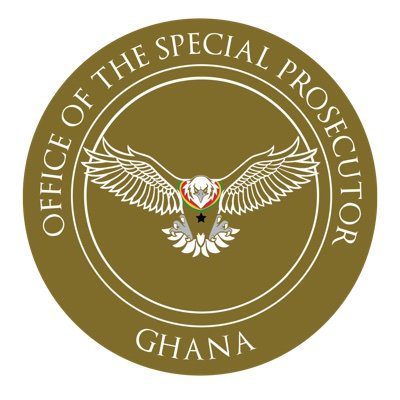The Office of the Special Prosecutor (OSP) on January 3, 2023, released the second half of the biannual report of its activities for the year 2022. The report details the Kissi Agyabeng-led office’s investigations and prosecution of some 136 different corruption cases involving government officials and offices. The report categorises these cases into prosecuted, ongoing, and concluded cases.
Of the concluded cases, there are those of charges of suspected corruption charges against the National Development Authority (NDA), and the Charles Bissue Issue. The latter being the case of Charles Bissue allegedly using his public office as the Secretary of the Inter-Ministerial Committee on Illegal Mining for personal gain in an illegal mining operation. In the former case the NDA was being investigated for allegedly awarding consultancy services contracts to A&QS Consortium Ltd illegally. Regarding these concluded cases the Special Prosecutor is yet to communicate the due course of action.
Speaking of using public office for profit, the State’s prosecution of Adjenim Boateng Adjei is ongoing (The Republic v. Adjenim Boateng Adjei & Another). The former Chief Executive of Public Procurement Authority, together with his brother-in-law are facing up to nine counts of directly or indirectly influencing the procurement processes for the awarding of contracts to gain an unfair advantage. They also face eight other counts using public office for profit. Then there is ongoing trial of Alexander Safo-Kantanka, who is charged with over two dozen corruption counts regarding public election. For those who will not recall, Mr Alexander was the President’s nominee to occupy the office of Chief Executive of the Juaben Municipal Assembly.
A Promise Betrayed
The other over 130plus cases still being investigated range from alleged corruption in the Electricity Company of Ghana (ECG), to the famous alleged Achimota Forest distribution under the “Estate” of the late Sir John (former Chief Executive of the Forestry Commission, and high ranking official of the NPP), a Bank of Ghana scandal involving events leading to the collapse of some banks in the country, an alleged illegal purchase and resale of military aircrafts by Airbus SE on behalf of the Republic of Ghana, to alleged attempted bribery of Parliamentary officials. The list is nigh endless.
Although the Special Prosecutor’s Office is making progress in its work to reduce corruption in the Republic, a source of hope to many Ghanaians, it certainly is alarming that there are this many corruption scandals in government offices. Even more so when one recognises that many of these corrupt and allegedly corrupt activities took place in the last six years. That is, during the tenure of the administration that categorically promised Ghanaians a corruption free governance!





















